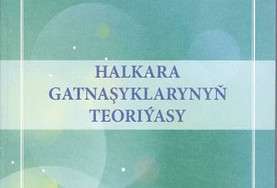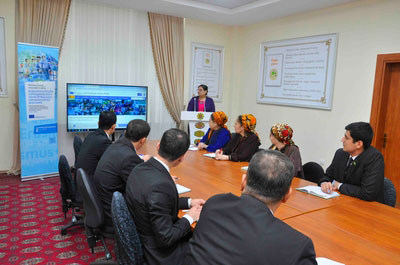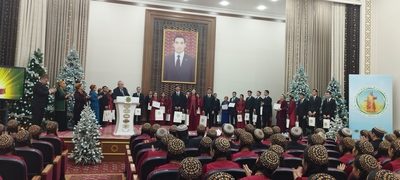The other day at the Turkmen National Institute of World Languages named after Dovletmammed Azadi, a scientific-practical conference "Mahmut Kashgari - a star in the scientific horizon of the East" was held, organized by the Ministry of Education of Turkmenistan.
Almost all of the speakers, including the senior lecturer at the Dovletmamed Azadi TNIM of Languages, Doctor of Philology Amanmyrat Baimyradov, Senior Researcher at the Institute of Languages and Literature named after A. Makhtumkuli of the Turkmen Academy of Sciences, candidate of philological sciences Rakhman Ilmamedov, head of the department of TSU named after Makhtumkuli, candidate of philological sciences Begmyrat Veyisov and others noted that one of the main scientific creations of Mahmud Kashgari is the creation of the "Dictionary of Turkic languages" ("Divan lugat at-Turk" ).
This complex work covers such branches of science as comparative-historical linguistics, lexicography, anthropological and areal linguistics. The merit of the scientist is to identify the relationship between the dialectal characteristics of the Turkic tribes and their geographical habitat, as well as their linguistic similarity.
The famous book by Mahmoud al-Kashgari is an encyclopedia that collects and summarizes extensive historical, cultural, ethnographic and linguistic material. In fact, this is the only surviving monument to early dialectology.
The appeal to the work of Mahmud Kashgari is not accidental, because his Dictionary enables future linguists, folklorists and literary scholars to form a clear idea of phonetic and morphological phenomena and the specifics of dialectical forms.
The holding of a scientific-practical conference in the student collective of the Turkmen National Institute of World Languages named after Dovletmammed Azadi became an additional incentive for future philologists to turn again to the texts of oral and poetic creativity of the peoples of the Central Asian region, which are of exceptional value for specialists.
Correspondent «GA»






